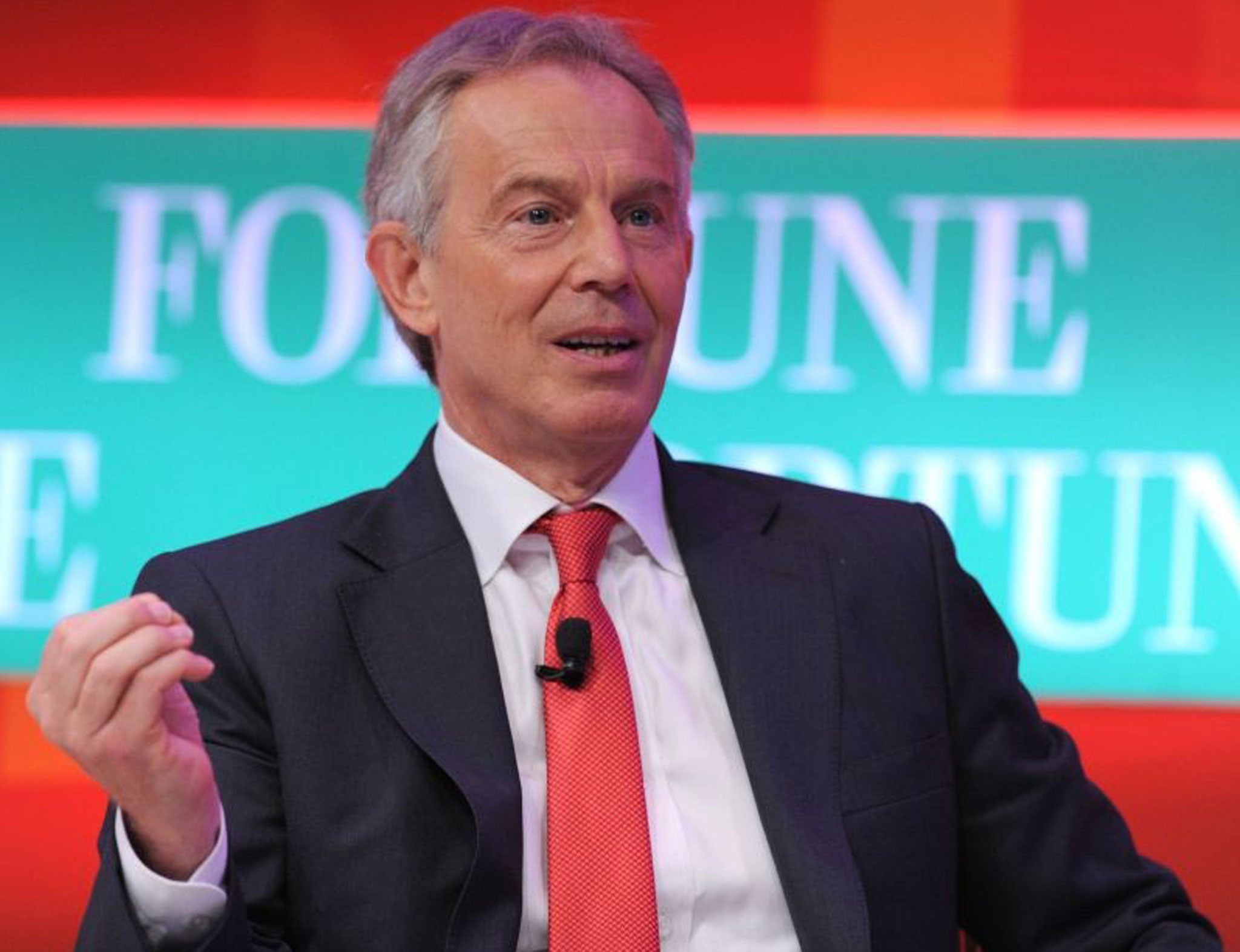Syrian civil war: Tony Blair calls for intervention after use of chemical weapons by President Bashar al-Assad and Hezbollah involvement
Former PM: 'We should be taking a more interventionist line. That’s where I come from in politics'

Your support helps us to tell the story
From reproductive rights to climate change to Big Tech, The Independent is on the ground when the story is developing. Whether it's investigating the financials of Elon Musk's pro-Trump PAC or producing our latest documentary, 'The A Word', which shines a light on the American women fighting for reproductive rights, we know how important it is to parse out the facts from the messaging.
At such a critical moment in US history, we need reporters on the ground. Your donation allows us to keep sending journalists to speak to both sides of the story.
The Independent is trusted by Americans across the entire political spectrum. And unlike many other quality news outlets, we choose not to lock Americans out of our reporting and analysis with paywalls. We believe quality journalism should be available to everyone, paid for by those who can afford it.
Your support makes all the difference.Tony Blair has waded into the debate over UK policy on the Syrian civil war, saying the Government should consider imposing a no-fly zone over Syria to prevent "catastrophic consequences."
The former prime minister and current peace envoy to the Middle East said there was a danger both sides will begin to use chemical weapons as an "acceptable form of warfare" if no action is taken.
In an interview with The Times, he said: "I feel very strongly we are in danger of a failure with catastrophic consequences if we’re not careful.
"This is no longer a civil war between factions within Syria. We should be taking a more interventionist line. That’s where I come from in politics. People can agree or disagree with it.”
The two developments which he says have “completely changed the game,” for him are the revelation of Hezbollah's open involvement in the battle over Qusayr, and US and UK confirmation of the use of chemical weapons by President Bashar al-Assad.
He said: “You’ve got the intervention of Hezbollah, at the instigation of Iran. The other big change is the use of chemical weapons. Once you allow that to happen — and this will be the first time it has happened since Saddam used them in the 1980s — you run the risk of it then becoming an acceptable form of warfare, for both sides.
“There are those within the Syrian Opposition who want a pluralistic society and democracy coming out of all of this — and they are the one group of people who are not being armed.
“You don’t have to send in troops, but the international community should think about installing no-fly zones."
Syria's civil war, now in its third year, has killed 90,000 according to the UN and displaced more than one million. It is fought between forces loyal to President Assad and rebels, mostly from the disparate Free Syrian Army.
Last night Prime Minister David Cameron discussed the situation in Syria in an hour-long video conference with President Barack Obama, French president Francois Hollande, German chancellor Angela Merkel and Italian prime minister Enrico Letta ahead of next week's G8 summit in Lough Erne.
Mr Cameron earlier restated the Government's position that no decision had been taken to arm moderate rebels, but added that he was a "brutal dictator who is using chemical weapons under our nose".
He backed Washington's "candid assessment" that the Syrian regime has used chemical weapons and that there is credible evidence of "multiple attacks" by the regime.
Earlier this week, Russia reacted with extreme scepticism to the claims about chemical weapon use.
Yuri Ushakov, a top foreign policy aide to Vladimir Putin, said Russian officials had been briefed by their American counterparts on the evidence.
But he added: "I will say frankly that what was presented to us by the Americans does not look convincing. It would be hard even to call them facts.”
President Obama has approved arming the Syrian rebels for the first time in response to the development, according to officials.
"We haven't seen any credible reporting of chemical weapons use by the Syrian opposition," he said.
"However, we assess that elements affiliated to al-Qa'ida in the region have attempted to acquire chemical weapons for probable use in Syria."
Subscribe to Independent Premium to bookmark this article
Want to bookmark your favourite articles and stories to read or reference later? Start your Independent Premium subscription today.
Join our commenting forum
Join thought-provoking conversations, follow other Independent readers and see their replies
Comments